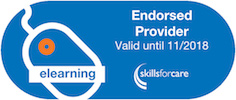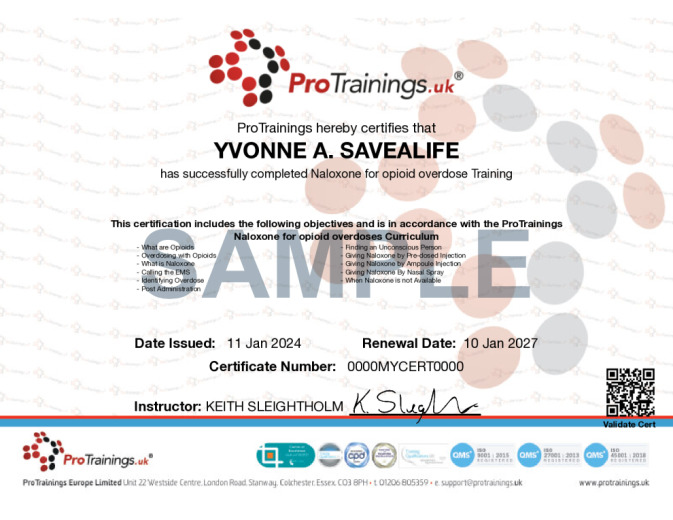Naloxone for Opioid Overdoses


Naloxone for Opioid Overdoses at a glance
- 3-year nationally recognised certificate
- 28 minutes of engaging video training
- Video access for 8 months
- Printable wall certificate
- CPD time credit conformation
- Follows latest UK Resuscitation and ERC guidelines
- Free weekly video refresher
- Evidence Based Training certificate
- Videos include subtitles
We have been recognised as an endorsed provider from Skills for Care, earning the prestigious distinction as a Centre of Excellence within training and health & social care.
Local authorities can prevent premature deaths from heroin and other opioid use by ensuring that naloxone is widely available. A recent survey showed that most local authorities provide naloxone, mostly through drug treatment services to drug treatment service users. All local authorities are advised to consider whether their local arrangements are effective at getting naloxone to where it is needed most.
Naloxone can be supplied by a drug service to any individual needing access to it. This could be to:
- An individual currently, or with a history of, using opiates
- A carer, family member or friend is liable to be on hand in case of overdose
- A named individual in a hostel or other facility where drug users gather and might be at risk of overdose e.g. the manager or another staff member
Drug services in this context are commissioned by a local authority or the NHS and understood to include:
- Specialist drug treatment services
- Primary care drug services
- Needle and syringe programmes, including those provided by pharmacies
- Pharmacy providing supervised consumption of opioid substitute medication
Naloxone can also be supplied on prescription to an individual currently – or with a history of – using illicit opiates, including someone leaving prison or receiving opioid substitution therapy. With the agreement of someone to whom naloxone can be prescribed, it can also be provided to their family members, carers, peers and friends
The content of this and all our courses has been independently certified as conforming to universally accepted Continuous Professional Development (CPD) guidelines and come with a Certified CPD Statement as well as a ProTrainings Certificate and for online courses an Evidence Based Learning statement.






